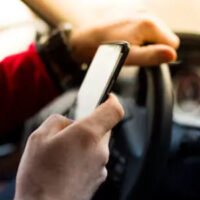Happy 2020, Florida! New Year, New Laws

As the holidays come to an end and we say goodbye to another year, the fireworks of New Year’s Eve are no match for the explosive results of not knowing what new laws coming into effect may affect you.
Ironically enough, the most important new law Florida residents should be aware of isn’t actually new at all. The texting and driving regulations went into effect July 1, but law enforcement has been using the first six months to issue warnings to drivers. The new law makes texting and driving a primary offense, meaning you can now get pulled over for it. As of New Year’s Day, authorities will start issuing tickets for the texting and driving law, so it’s time to stop this dangerous habit for good.
But that’s not all. The second part to the texting and driving law deals is enforcing a “hands-free” portion, which means you cannot use your phone in any capacity while driving through active school and work zones. But when they say “hands-free,” they basically mean Hands-off, or else.
For a first offense, the fine for violating the law is $30 plus court fees. For a second offense, it’s $60 plus court fees and three points on a driver’s record, according to the Florida Department of Highway Safety and Motor Vehicles. If you’re caught texting or using your phone (unless it’s hands-free) in a school zone and work zone, you will get a $60 fine plus court fees and three points on your driver’s record, even if it was your first offense.
If you have more questions, there are plenty of resources to search for online, however The Tampa Bay Times did a great Q&A piece that I’ll repost here:
“Q: Is holding my phone while driving a crime no matter what?
It depends where you are. Work zones and school zones are hands-free areas, which means cell phones, tablets and gaming systems are off limits. This section of the law, which that prohibits holding your phone while driving in these areas, is the part that goes into effect today. Previously, officers were only issuing warnings.
Q: Can I get in trouble if I’m texting at a red light?
Nope. The bill does not apply to stationary vehicles, so if your vehicle is stopped at a red light or stuck in traffic, you can technically use your phone.
Q: Can’t I just claim I was checking directions or the weather and get out of a ticket?
If you’re not in a school or work zone, holding a phone is okay if it’s for designated safety reasons — like navigation, checking weather or traffic alerts, and calling law enforcement to report criminal or suspicious activity.
This means that if you have a poor sense of direction, don’t worry — you’ll still be able to use your favorite GPS service without fear of being pulled over.
Q: Does voice texting count?
As long as you’re not pressing buttons, you’re in the clear. Voice texting is allowed at all times, including in school and work zones. The goal of the law is to get people to put their phones down.
Q: How strictly is this being enforced?
Law enforcement agencies across the state issued more than 1,200 citations for texting and driving from July 1 through Dec. 29. That’s an average of 18 per county during the six month period.
Issuing a citation isn’t so easy. It can be difficult to deduce exactly how a driver in the next car is using a phone, especially through tinted windows. And deputies have to keep their eyes on the road while they’re driving, too.
Even after an officer has seen enough to pull drivers over, they could argue they were using Google Maps or dialing a phone number.
Q: Will the officer ask to see my phone? Do I have to show it?
Officers might ask, but they are also required to inform drivers of their rights to decline a search of their phones. Motorists don’t have to give their phones to officers without a warrant.
The one exception to this rule is if a crash results in death or injury. If that happens, a motorist’s cellphone billing records will be considered as admissible evidence.”
Happy New Year and stay safe in 2020!
